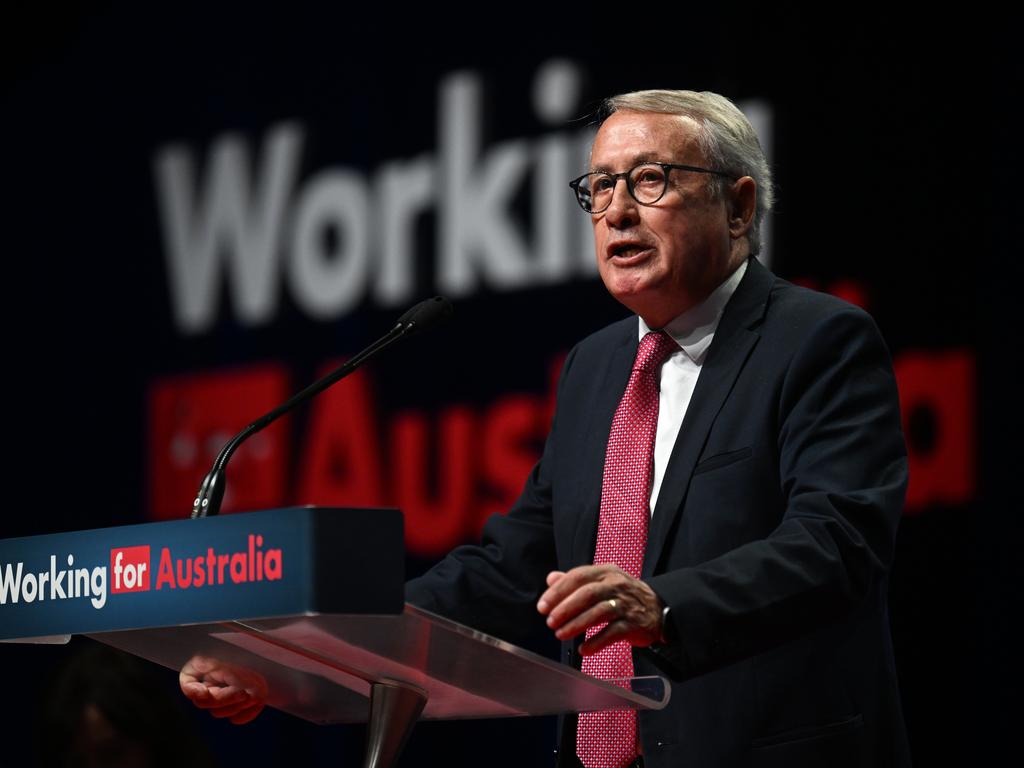
AUKUS, and more importantly nuclear-powered submarine capability, have been effectively chiselled into the Labor Party’s national policy platform against significant opposition among the Labor rank and file.
Not only is it a triumph of pragmatism over ideology but also a reaffirmation of the political alignment over Australia’s strategic reality and future defence needs.
Such a step for Labor would have been unthinkable even two years ago.
Albanese’s decision to speak to the debate at the conference confirms just how precarious it was.

Two issues have been totemic for the Labor left over decades. Nuclear power and American military hegemony.
Nothing could be more symbolically abhorrent for the Labor left, and the broader party membership, than AUKUS and what it represents.
AUKUS was a Coalition creation, an enduring policy legacy of the Morrison era.
That it survived a change of government to a left leaning Labor movement was in itself a momentous shift for Labor and a recognition that the world had dramatically changed since it was last in office.
Having passed the test of the party’s conference is an achievement owed to Albanese and his deputy and defence minister Richard Marles and one that now cements a bipartisan future for AUKUS.
It reflects not only the political convergence of Labor and Liberal over defence but is symbolic of the seriousness of the strategic situation evolving in our region, as well as globally.
Albanese has been able to achieve this through no other means than by asserting his authority as prime minister as Marles navigated the factional and union divisions.

Liberal leader Peter Dutton suggests that had Anthony Albanese not been prime minister, he would have been arguing against it.
It never would have lived through an ALP national conference in Opposition.
This is a fair assessment based on Albanese’s historical leanings.
There is no greater display of the pragmatism that Albanese decided Labor must adopt to govern well, and which has evolved around his leadership. than AUKUS.
A sense of maturity on this issue has also emerged among his most senior Cabinet Ministers including Foreign Minister Penny Wong. Pat Conroy, a leading factional player in Labor’s left is one of its most strident defenders.
Deals had to be done to placate those left-wing unions agitating against it, with guarantees around sovereign construction and local jobs.
But in the end, calls for the conference to remove any reference to nuclear powered submarines failed.
Not only does the substance of the defence pact remain official party policy, a 32-paragraph attachment to the national policy platform, penned by Marles, and expanding on the importance of AUKUS, is now an established chapter in Labor’s future charter.
Deep divisions within the party remain, however, and this will be a constant issue for the party’s future leaders to navigate.








Anthony Albanese will not only emerge unscathed from the ALP national conference he will do so having secured a historic and important victory.